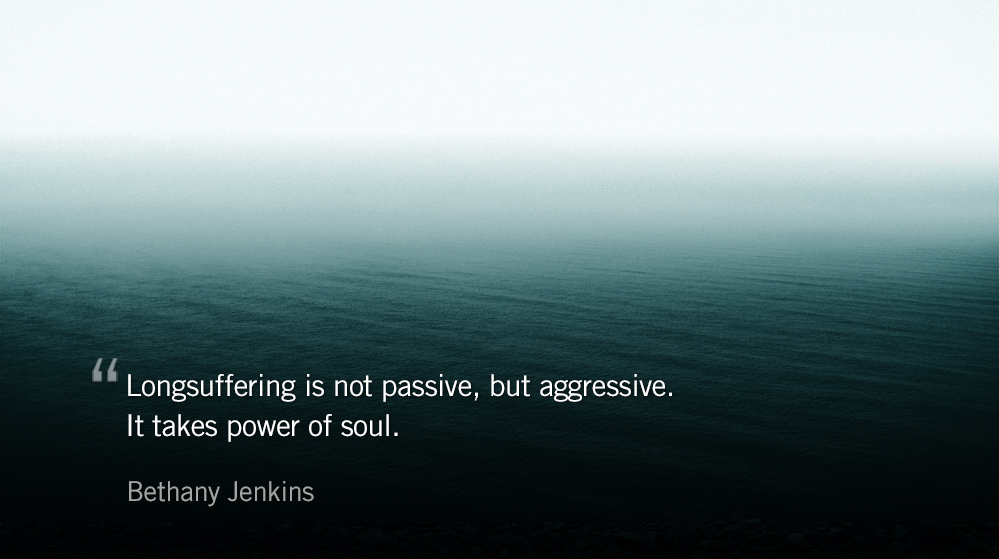Bethany Jenkins (originally published April 23, 2014)
Readers’ Choice
“The prayer at the end sums it up beautifully: Prayer: Lord, longsuffering is not passive, but aggressive. It takes power of soul.'” — Sam
Titus 2 11-14
11 For the grace of God has appeared that offers salvation to all people. 12 It teaches us to say “No” to ungodliness and worldly passions, and to live self-controlled, upright and godly lives in this present age, 13 while we wait for the blessed hope—the appearing of the glory of our great God and Savior, Jesus Christ, 14 who gave himself for us to redeem us from all wickedness and to purify for himself a people that are his very own, eager to do what is good.
Waiting: We are all in the waiting room — for a test result, for a baby, for a wedding day, for a job offer. Here, in Titus 2, we read that we are “waiting for our blessed hope, the appearing of the glory of our great God and Savior Jesus Christ.” How do we wait, though, without growing cynical, idolatrous, and despairing?
Eros: Perhaps the old word for patience — long-suffering — better describes how we experience waiting. In Love Within Limits, Lewis Smedes contrasts patience born of natural love (eros) with patience born of divine love (agape). He writes, “Erotic love has no power for longsuffering. Eros is desire … It can be frustrated when we do not get exactly and enduringly what we long for. It can be betrayed when people renege on a promise to fulfill our need. It can be burned out when what filled us for a season suddenly leaves us empty. Born from suffering, eros is destined for suffering. That erotic love does not have power to suffer long is its built-in tragedy. It must suffer, but it has no strength for longsuffering. Eros cannot wait.”
Agape: Agape, however, “has the power to be creatively weak. Because it is not driven by ardent need, it has power to wait. It gives power to accept life, to find goodness in living while we are victims of situations we despise. This is the only way to explain two attitudes we observe in Jesus toward his own horrible suffering. In Gethsemane, we hear him plead with God to be spared the cross that lay ahead … The next day, as he bears his cross to Calvary, he tells the weeping women who follow him: ‘Don’t cry for me.’ Here we see his power to affirm himself as the loving Lord and free Savior who chose to suffer, to be a victim of suffering. He was not a helpless victim of tragedy; he was a powerful person who chose to be weak. He had the strength to become a victim even while he affirmed his own life as free in obedience to love.”
Prayer: Lord, long-suffering is not passive, but aggressive. It takes power of soul. Our only hope in waiting, therefore, is the power of your divine love that moves us toward one another and toward you. May we seek your face and find your love that we may be longsuffering. Amen.
Daily Reading
Judges 20 (Listen – 7:13)
Acts 24 (Listen – 4:11)






